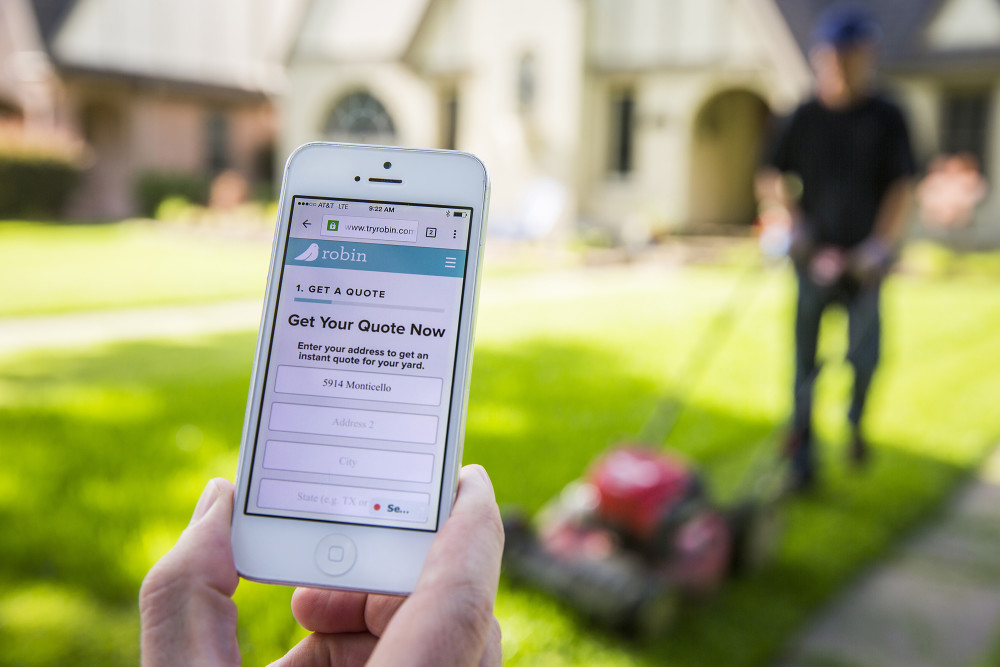By Michelle Pitcher
The Dallas Morning News.
DALLAS
Your feet are propped up on your coffee table as you do your grocery shopping on Instacart. Your phone pings, reminding you that your sesame chicken is on the way, courtesy of GrubHub.
You remember you have to swing by the hardware store later, but your check engine light is on again. You’ll request an Uber ride just in case.
The idea of outsourcing services has exploded the last several years as companies like Uber have caught on with consumers.
This segment of the economy isn’t limited to ride-sharing but also includes food delivery, transportation and travel services. All are making waves along the way.
Aassia Haq, founder of travel app Guidrr, said we are seeing an important intersection of trends: technological advancements, freedom for workers to make their own schedules and consumers’ desire for more convenience.
She said increased efficiency is a “logical business problem that we’ve been trying to solve for centuries, but the tools have improved dramatically.”
Any industry that would benefit from increased efficiency and decreased labor costs has something to gain from the sharing economy. Last year, over $1 billion was invested in food and grocery delivery services alone, according to TechCrunch.
In Dallas, one such company has sprung up, Robin, touted as “Uber for your lawn.” Founders Bart Lomont and Justin Crandall conceived of the idea in an attempt to bring the lawn care industry into the age of convenience and efficiency.
The service connects existing lawn care teams with customers who want to put their yardwork on autopilot. When customers submit a request online, the Robin team contacts an independent lawn team in the area and schedules it for the next available time.
You pay online, and next thing you know, your lawn has been mowed.
The lawn care teams can provide a variety of services, and all are vetted professionals, often found on websites that allow consumers to rate and review their services.
The on-demand sector is not limited to service providers. A great deal of sharing occurs between customers on these platforms as well. Craigslist, for instance, allows someone to sell a couch to another person without a middleman.
The local boating scene will soon see this kind of sharing service.
Rob Jones thought of the idea for Prop, a boat-sharing and crew-finding app, because he needed to find someone else to drive his boat so he could wakeboard.
He realized there wasn’t a platform to connect boat owners who needed drivers with people who wanted to be on the water. Drawing upon the ride-sharing model, he hopes to have his app available by the end of the year.
SPRINT HOUSE CALLS
The sharing space is widely composed of startups, but some larger companies are harnessing the power of on-demand services to connect with their customers. This summer, telecom giant Sprint Corp. launched an on-demand service in the area that allows customers to request a house call from experts who will deliver, set up and transfer data to new mobile devices.
Whole Foods is also making waves with its partnerships with many food and grocery delivery services.
THE REDEFINED WORKER
To participate in the sharing economy, you need only to lend your car, rent out your room or deliver food. Enterprising workers are drawn to the flexibility, and customers are drawn to the extreme convenience.
While Robin clearly categorizes its lawn teams as contractors, the lines are blurred for some services. Uber just came under scrutiny for its decision to call its drivers contractors instead of employees. The California Labor Commission ruled that they should be considered employees, which could prove costly for Uber.
How to categorize workers isn’t the only contentious point in the sharing economy. Clashes over regulation and disrupting traditional markets have cropped up, as with Uber and the taxi industry. Even 2016 presidential candidates are taking up arguments for and against governmental regulation of the free-form market.
The issue may come down to millennials and how they envision the workplace.
A recent study done by travel insurance firm Allianz Global Assistance showed that millennials are more likely to know about these shared services than other age groups. Sixty percent of millennials in the study said they trusted the sharing economy, a fundamental shift in consumer mentality.
The workplace, too, is beginning to reflect these shifting values.
Haq, an expert on independent work, said “the genie is out of the bottle” on people rethinking how and where they want to work.
“There is a reason people are flocking to this type of work, and that’s because people are searching for income and for opportunity,” Haq said. “People are willing to try new ways of earning income. I believe there is going to be a lot of innovation within the employment model.”
Chirag Gupta, director of NoD co-working in Dallas, said he has seen a huge change.
He said he is not concerned by the initial reservations people have about services like Airbnb, an online platform that allows people to rent out their homes, as users will learn the best practices for using and thriving within a sharing economy.
“In 50 years, people will probably have a different mindset about all of this,” Gupta said.














































































































































































































































































































































































